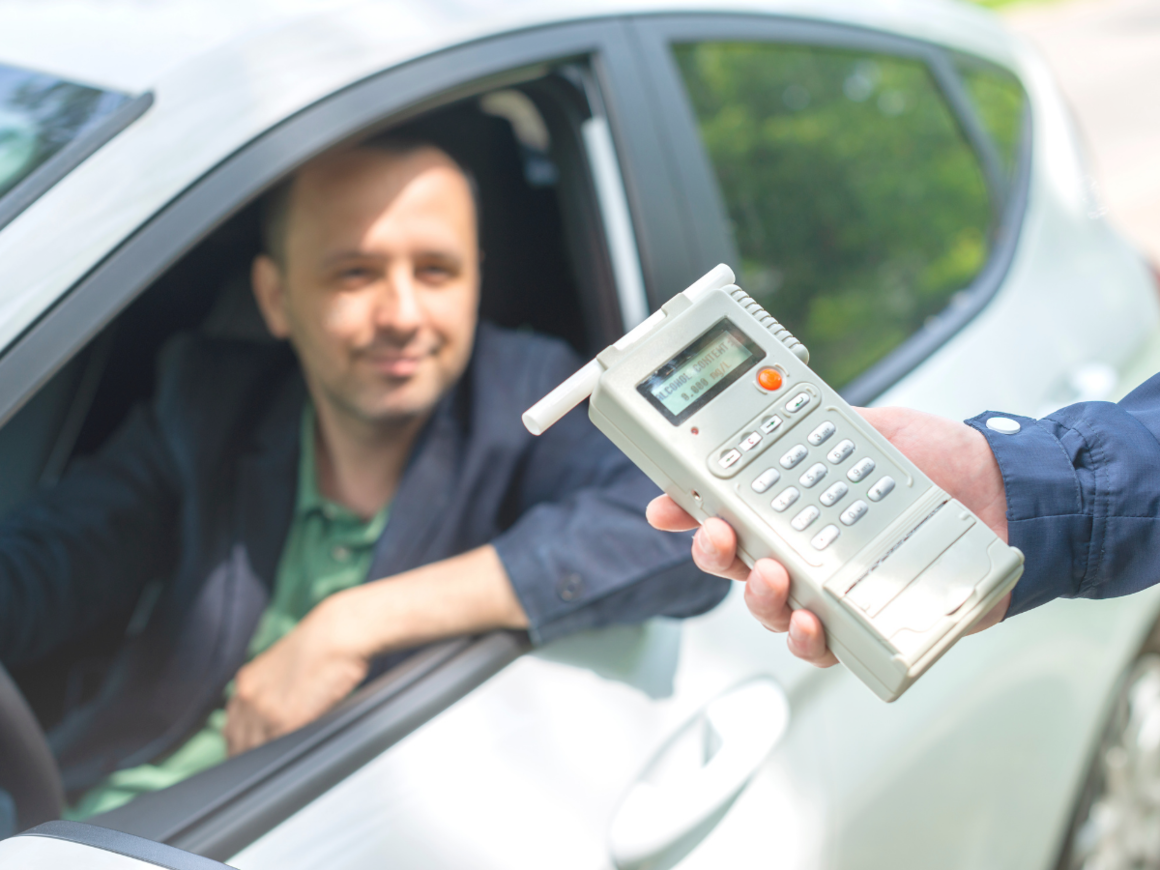Dallas, TX / Getting stopped for a suspicion of drunk driving can be a frightening experience, especially if the police officer asks you to take a Breathalyzer test. Many people wonder if they should consent or refuse, or if they even have that option. They also wonder if they will face any negative consequences if they decline a breath test.
While you have an option to refuse a Breathalyzer, there are consequences. If you are facing drunk driving charges in Texas, it’s important to talk to a Texas criminal defense lawyer about your case.

What Is a Breathalyzer Test?
When the police stop someone on suspicion of drunk driving, they often ask the person to take a Breathalyzer test. This type of test involves the person blowing into a tube that is connected to a device that measures the level of alcohol in the breath. The machine has the ability to convert the amount of alcohol in the breath to a blood alcohol concentration or BAC.
The Breathalyzer machine is possible because alcohol lingers in the body for a time after it is consumed. Under Texas law, a motorist is considered legally intoxicated when their BAC is .08 or higher.
You might wonder if you can escape a drunk driving charge simply by refusing to take a Breathalyzer test. While you can certainly refuse, there are consequences for doing so. In some cases, these consequences can be quite serious, so it’s important to fully understand what is at stake.

Implied Consent in Texas
In Texas as in many other states, the mere act of obtaining a driver’s license means you have “consented” to taking a Breathalyzer test if the police suspect you of being intoxicated behind the wheel.
But wait a minute, you might be thinking. How can you consent to something if you never agreed to it or never signed a paper saying you’re okay with a Breathalyzer? This is because of a doctrine known as “implied consent.”
When you get a driver’s license, you agree to abide by all the laws that pertain to motorists. However, you can still decline to take a Breathalyzer. However, this doesn’t mean you get to simply drive away.
Search Warrant for a Blood Test
In some cases, and it typically depends on the police department or the county, the police department might ask the court for a search warrant to test your blood. If the court grants the search warrant, the police can take you to an appropriate medical facility and have medical personnel draw a blood sample.
If this happens, there may be ways to challenge the sample, which can result in the court suppressing the sample as evidence. For example, the sample must be obtained lawfully, and the blood must be transported and stored properly.
Suspension of Your Driver’s License
When a police officer stops you because they suspect you have been drinking, they must give you written notice as well as verbal notice that refusing to submit to a Breathalyzer means your driver’s license will be suspended automatically for a minimum of 180 days.
If you have past drunk driving convictions on your record, you could lose your license for up to two years depending on how many prior drunk driving convictions you have.
If you refuse the Breathalyzer test, the police officer must have you confirm in writing that they informed you of the potential penalties. At this point, the officer will also confiscate your driver’s license.
Once this happens, you have just 15 days to ask the court for an administrative hearing. This hearing gives you an opportunity to contest the automatic license suspension.
This hearing takes place under the Administrative License Revocation (ALR) Program, which takes place any time someone is taken into custody for driving while intoxicated (DWI) or boating while intoxicated. This applies in the following cases:
- The person stopped refuses a breath or blood alcohol test
- The person stopped fails a breath or blood alcohol test with a BAC of .08 percent or higher
- The person stopped was driving a commercial vehicle and fails a breath or blood test with a BAC of .04 percent or higher
It’s important to note that the ALR process is separate and independent from any criminal case for DWI or boating while intoxicated.
Discuss Your Case with a Dallas Criminal Defense Lawyer
If you are facing an administrative hearing, it’s in your best interest to work with an experienced Texas criminal defense lawyer. There are many possible defenses that may be available in your case.
For example, it’s possible the officer stopped you unlawfully. In that case, you may be able to have any evidence collected in your case thrown out of court, where it can’t be used against you.
Law Office of John Helms criminal defense lawyer. 214-974-3335
LAW OFFICE OF
JOHN M. HELMS
Address:
12240 Inwood Rd, Suite 220
Dallas, Tx 75244
DUE to COVID-19, Attorney John Helms does Phone & Zoom calls.
Telephone:
214-974-3335
References: Sources:
- https://www.txdot.gov/inside-txdot/division/traffic/safety/sober-safe/intoxication.html
- https://www.dps.texas.gov/DriverLicense/alr.htm
***ATTORNEY ADVERTISING***
Prior results cannot and do not guarantee or predict a similar outcome with respect to any future case.
This news has been published for the above source. Kiss PR Brand Story Press Release News Desk was not involved in the creation of this content. For any service, please contact https://story.kisspr.com.







